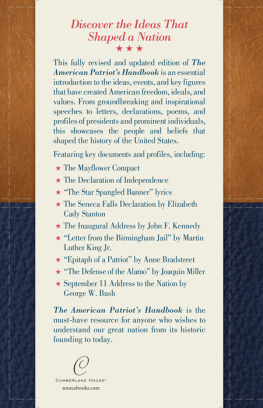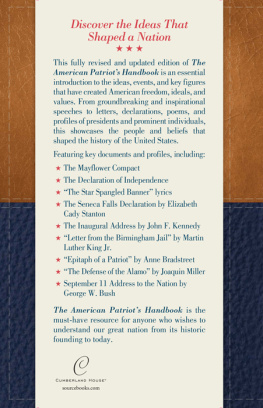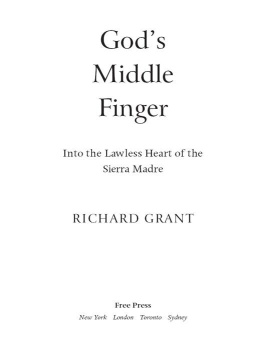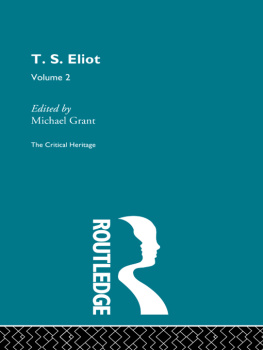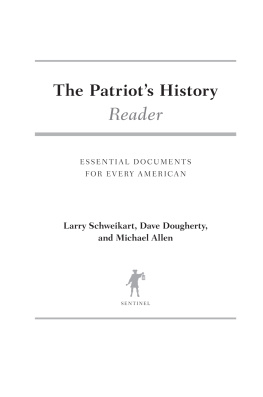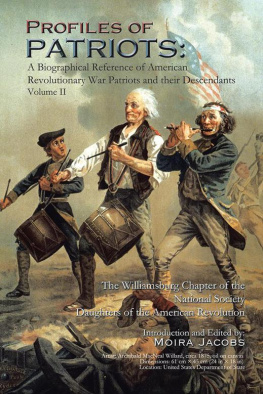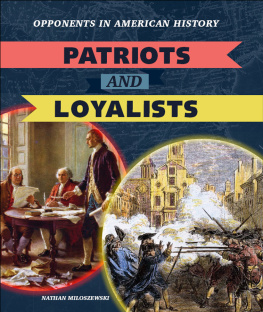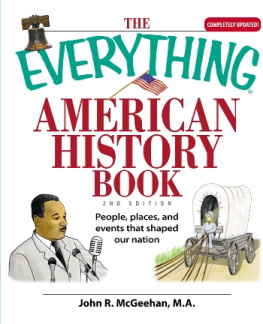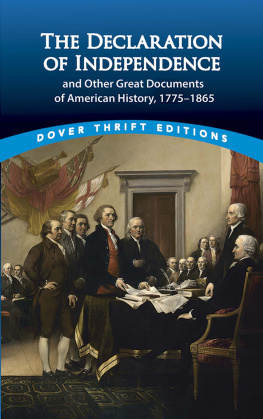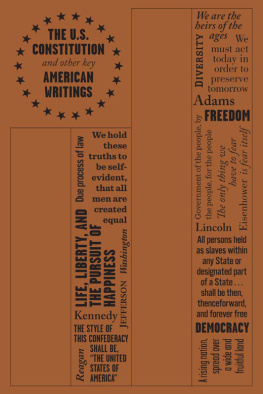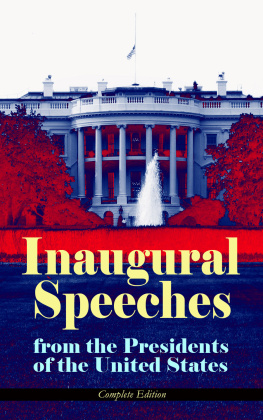Copyright 2009, 2016 by George Grant
Cover and internal design 2016 by Sourcebooks, Inc.
Cover design by Lynn Harker/Sourcebooks, Inc.
Sourcebooks and the colophon are registered trademarks of Sourcebooks, Inc.
All rights reserved. No part of this book may be reproduced in any form or by any electronic or mechanical means including information storage and retrieval systemsexcept in the case of brief quotations embodied in critical articles or reviewswithout permission in writing from its publisher, Sourcebooks, Inc.
This publication is designed to provide accurate and authoritative information in regard to the subject matter covered. It is sold with the understanding that the publisher is not engaged in rendering legal, accounting, or other professional service. If legal advice or other expert assistance is required, the services of a competent professional person should be sought.From a Declaration of Principles Jointly Adopted by a Committee of the American Bar Association and a Committee of Publishers and Associations
Published by Cumberland House, an imprint of Sourcebooks, Inc.
P.O. Box 4410, Naperville, Illinois 60567-4410
(630) 961-3900
Fax: (630) 961-2168
www.sourcebooks.com
Library of Congress Cataloging-in-Publication Data
The American patriots handbook : the writings, history, and spirit of a free nation / George Grant. Second edition.
pages cm
Includes index.
(hard cover : alk. paper) 1. United StatesHistorySources. 2. United StatesPolitics and governmentSources. 3. PatriotismUnited StatesHistorySources. I. Grant, George
E173.A749 2016
973dc23
2015012764
In Memoriam
Mentors in Statesmanship:
Howard Phillips
and
D. James Kennedy
CONTENTS
ACKNOWLEDGMENTS
All heaven and earth resound with that subtle and delicately balanced truth that the old paths are the best paths after all.
J. C. Ryle
Daniel Webster once quipped, Whatever makes a man a good Christian also makes a good citizen. Although the subject of informed public virtue has been much maligned of late, it is no less true today than it was in Websters day. And thankfully, it is a subject not without its champions. That this book exists at all is substantial evidence of that happy fact.
It was David Drye who first suggested that I make good my long-held hope of revising and publishing a new edition of what was once an American educational tradition: a citizens handbook of essential historical and inspirational resources. He encouraged me along the way, supported my efforts, and pushed me forward when other obligations threatened to sidetrack this project. His graciousness and enthusiasm unhesitatingly I count among the greatest gifts in my life.
Likewise, Ron and Julia Pitkin at Cumberland House and Heather Armstrong, Dean Andreola, Phil Hibbard, and Will Wallace at Highland Books prompted me to move apace. Their professionalism, friendship, and constancy have all combined to make this an extraordinarily pleasant publishing experiencea genuine rarity these days. And Stephanie Bowen at Sourcebooks enthused over the possibility of a refreshed edition, encouraging me to make the material as relevant for a whole new generation of readers.
Each of these champions of public virtue has taught me what it means to be a good citizen by exemplifying what it means to be a good Christian. Thus, I am grateful to them all.
Of course, my family has been my greatest source of inspiration and encouragement. It has been with them that the roots of public virtue have been made known to mein the guise of private virtue. They are not only my chief joys in life, they are my first audience and my best critics: my wife, Karen; my children, Joel, Joanna, and Jesse; their spouses Jamie, Nolan, and Jackie; and my grandchildren David, Elijah, Santi, and Luca. All that I am and all that I do, I owe to them.
Kings Meadow
Eastertide 2015
INTRODUCTION
Politics ought to be the part-time profession of every citizen who would protect the rights and privileges of free people.
Dwight D. Eisenhower
During their public careers, John Adams and Thomas Jefferson were bitter rivals. But, once they retired from politics, the two men became devoted friends and trusted confidants. Their collected correspondence offers an altogether unique perspective of Americas Founding Era. The two great pioneers who had a hand in shaping the hopes, aspirations, and eventually the political realities of their new nations experiment in liberty had a perspective that very few others could have.
In 1815 Adams wrote to Jefferson. He was concerned that what they had worked all their lives for and fought so sacrificially for might somehow now be forgotten or neglected or overlooked in the young nations rush to modernization and prosperity. He wrote, What do we mean by the Revolution? The war? That was no part of the Revolution. It was only an effect and a consequence of it.
Adams and Jefferson both understood that America represented something far more significant than mere independence. The American Dream was something far more substantial than mere material gain. Now nearing the end of their lives, they wanted to make certain that future generations would understand that American culture was the fruit of something far more than their shared political, economic, and military aspirations.
This notion is what G. K. Chesterton was describing when he quipped, America is the only nation in the world that is founded on a creed. Other nations find their identity and cohesion in ethnicity, or geography, or partisan ideology, or cultural tradition. But America was founded on certain ideasideas about freedom, about human dignity, and about social responsibility. It was this profound peculiarity that most struck Alexis de Tocqueville during his famous visit to this land at the beginning of the nineteenth century. He called it American Exceptionalism.
About the same time de Tocqueville penned his sage observations in his classic book, Democracy in America, educators in the fledgling republic began to realize that if their great experiment in liberty, their extraordinary American Exceptionalism were to be maintained over the course of succeeding generations, then an informed patriotism would have to be instilled in the hearts and minds of the young. Indeed, John Quincy Adams, the remarkable son of John Adams, wrote, Posterity: you will never know how much it has cost my generation to preserve your freedom. I hope you will make good use of it.
Thus, from the middle of the nineteenth century to the middle of the twentieth, rising citizens were presented with small handbooksbrief guides to the essential elements of the American creed. Pastors, statesmen, educators, and parents wanted to somehow pass on to posterity the moral and constitutional tools necessary to make good use of their freedom.
Over the past few years I have tried to collect a representative sample of such handbooksscouring dusty antiquarian bookshops, libraries, and academic collections whenever and wherever I could. Though they varied somewhat over the years in presentation, style, and format, it appears that each was designed to be an introductory and documentary record of the development, confirmation, and establishment of the exceptional American creed. They were offered to the ever-changing citizenry in the hope that the never-changing principles of freedom might be fully comprehended and defended against any and all incursions.

